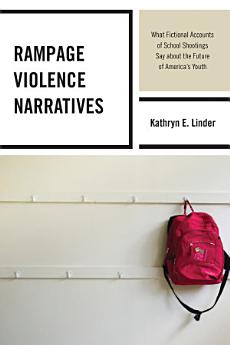Rampage Violence Narratives: What Fictional Accounts of School Shootings Say about the Future of America’s Youth
abr. de 2014 · Bloomsbury Publishing USA
E-book
168
Páginas
reportAs notas e avaliações não são verificadas Saiba mais
Sobre este e-book
Springfield. Columbine. Sandy Hook. Each school shooting in the United States is followed by a series of questions. Why does this happen? Who are the shooters? How can this be prevented? Along with parents, school officials, media outlets, and scholars, popular culture has also attempted to respond to these questions through a variety of fictional portrayals of rampage violence. Rampage Violence Narratives: What Fictional Accounts of Rampage Violence Say about the Future of America’s Youth offers a detailed look at the state of youth identity in American cultural representations of youth violence through an extended analysis of over forty primary sources of fictional narratives of urban and suburban/rural school violence. Representations of suburban and rural school shootings that are modeled after real-life events serve to shape popular understandings of the relationship between education and American identity, the liminal space between childhood and adulthood, and the centrality of white heterosexual masculinity to definitions of social and political success in the United States. Through a series of "case studies" that offer in-depth examinations of fictional depictions of school shootings in film and literature, it becomes clear that these stories are representative of a larger social narrative regarding the future of the United States. The continuing struggle to understand youth violence is part of an ongoing conversation about what it means to raise future citizens within a cultural moment that views youth through a lens of anxiety rather than optimism.
Sobre o autor
Kathryn E. Linder is research director for Oregon State University Ecampus.
Avaliar este e-book
Diga o que você achou
Informações de leitura
Smartphones e tablets
Instale o app Google Play Livros para Android e iPad/iPhone. Ele sincroniza automaticamente com sua conta e permite ler on-line ou off-line, o que você preferir.
Laptops e computadores
Você pode ouvir audiolivros comprados no Google Play usando o navegador da Web do seu computador.
eReaders e outros dispositivos
Para ler em dispositivos de e-ink como os e-readers Kobo, é necessário fazer o download e transferir um arquivo para o aparelho. Siga as instruções detalhadas da Central de Ajuda se quiser transferir arquivos para os e-readers compatíveis.








